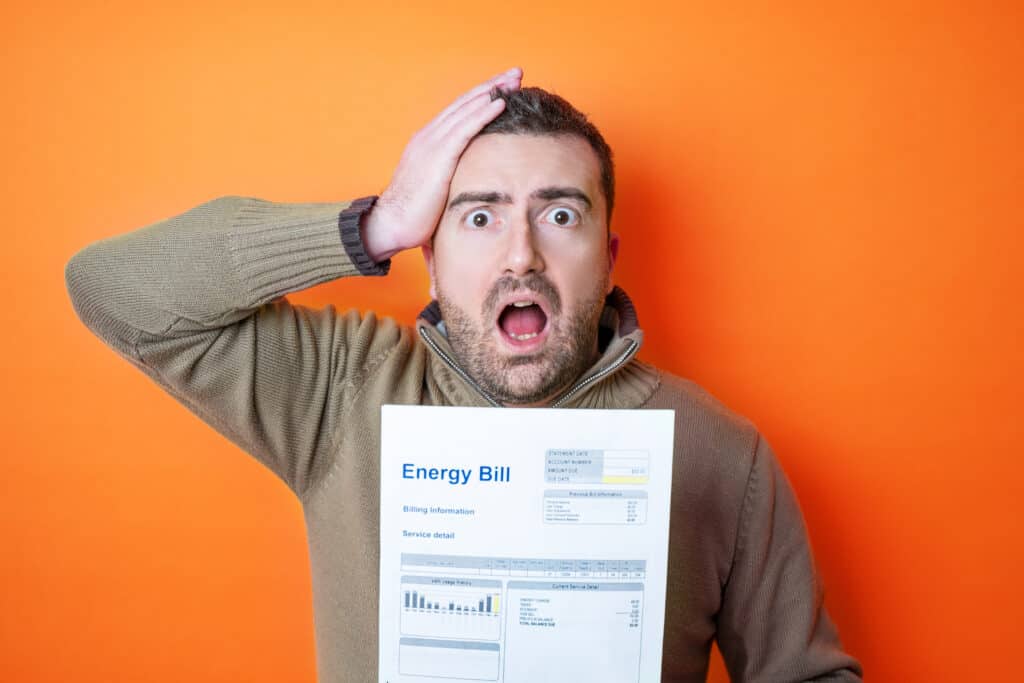Any product or company names, marks, or logos shown on this page are the property of their respective owners. Compare Power is an unaffiliated, independent marketplace. Get unbiased, accurate information backed by our commitment to editorial integrity.
Hey there, Texas!
Are you scratching your head comparing fixed-rate vs. variable-rate electricity plans?
You’re not alone. It’s a common dilemma for many of us. But don’t worry, we’ve got you covered
In this comprehensive guide, we’ll break down the pros and cons of each plan, how market conditions can impact variable rates, and how to choose the best plan for your needs.
TLDR: Fixed-rate plans offer stability with a set rate for the duration of your contract, while variable-rate plans offer flexibility with rates that change based on market conditions. Your choice depends on your risk tolerance and desire for predictability.
What is a Fixed-Rate Electricity Plan?
A fixed-rate electricity plan locks in your rate per kilowatt-hour (kWh) for the duration of your contract, which can range from 3 to 36 months.
This means your rate won’t change, even if market prices fluctuate.
It’s like having a safety net for your electricity bills, especially during those scorching Texas summers or chilly winters when electricity demand can spike.
Pros and Cons of Fixed-Rate Electricity
The major advantage of a fixed-rate plan is predictability. You know exactly what your rate will be each month, making budgeting a breeze.
However, if market prices drop, you won’t benefit from the lower rates until your contract ends. And if you want to switch plans, you’ll probably be stuck with an Early Termination Fee (ETF).
How Do Fixed-Rate Energy Bills Work?
With a fixed-rate plan, your energy bill is calculated by multiplying your fixed rate per kWh by the electricity you’ve used plus any additional fees or charges.
This means that while your rate per kWh remains the same, your total bill can vary based on your usage.
If you use more electricity in a month, your bill will be higher. If you use less, your bill will be lower.
What is a Variable-Rate Electricity Plan?
On the flip side, variable-rate electricity plans offer flexibility.
But your rate can change from month to month based on market conditions.
These conditions can be influenced by weather, demand, and the price energy providers pay to buy electricity from power generators.
Pros and Cons of Variable-Rate Electricity
Variable-rate plans can offer cheaper electricity when the supply is abundant, such as during mild weather when demand is low.
However, during high-demand periods, the cost per kWh can increase significantly. This unpredictability can make budgeting more challenging.
Impact of Market Conditions on Variable Electricity Rates
Market conditions play a significant role in variable electricity rates. Factors like weather, demand, and energy providers’ costs can cause rates to fluctuate.
For instance, electricity demand can skyrocket during a hot Texas summer, leading to higher rates.
Fixed or Variable Electricity Plan: Which is Better?
The choice between fixed and variable rate plans depends on your risk tolerance and desire for stability.
A fixed-rate plan may be your best bet if you prefer predictable bills and protection from market volatility.
If you’re willing to take on some risk for the potential of lower rates during certain times of the year, a variable-rate plan could be a good fit.
How to Choose Between Fixed and Variable Electricity Rates
Consider your energy usage patterns and budget when choosing between fixed and variable rates.
A fixed-rate plan might save you money if your electricity usage is high during peak demand periods. For most Texans, fixed-rate electricity plans make the most sense.
If your usage is lower and you can handle some fluctuation in your bill, a variable-rate plan might be more cost-effective.
What is a Good Fixed Rate for Electricity?
A good fixed rate for electricity can vary based on several factors, including location, contract length, and current market conditions.
It’s always a good idea to compare rates from different providers to ensure you get the best deal.
Enroll today! Fixed-rate plans are as low as $0.12 per kilowatt-hour (kWh) on ComparePower.
Why Choose ComparePower?
At ComparePower, we simplify the process of shopping for electricity.
We provide a platform for comparing rates from different providers, making it easier for you to find a plan that fits your needs and budget.
We understand that choosing an electricity plan can be overwhelming. That’s why we’re committed to providing straightforward, easy-to-understand information.
We’re here to answer any questions and guide you through the process. Without ComparePower, you could spend more time and effort comparing rates from different providers.
If you are not aware of all the options available to you, you might also miss out on potential savings.
Your Turn to Save
Choosing between a fixed and variable rate electricity plan doesn’t have to be complicated. With ComparePower, you can easily compare rates and find a plan that suits your needs.
So why wait? Start comparing today and take control of your electricity bills.
Fixed-Rate vs. Variable-Rate Electricity FAQs
Call us at 855-441-3030 Monday through Friday, 8:30 a.m. to 6:30 p.m., or Saturday, 9:00 a.m. to 4:30 p.m.









